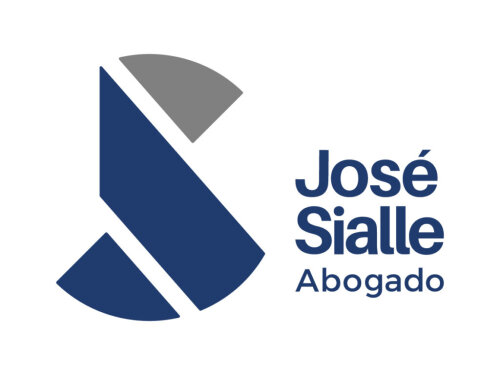Best Agriculture Lawyers in Córdoba
Share your needs with us, get contacted by law firms.
Free. Takes 2 min.
List of the best lawyers in Córdoba, Argentina
About Agriculture Law in Córdoba, Argentina
Córdoba is one of Argentina's main agricultural provinces - a leader in grain, oilseed and livestock production, with intensive farming zones, irrigated areas and extensive grazing land. Agriculture law in Córdoba sits at the intersection of federal, provincial and municipal rules. Producers must comply with national frameworks for sanitary controls, environmental protection and taxation, while provincial and municipal regulations govern land use, water permits, local taxes and specific rural policies. Legal issues in agriculture therefore blend property law, contract law, environmental and administrative law, labor and social security rules, and sector-specific regulatory regimes.
Why You May Need a Lawyer
Agricultural activities raise many legal questions where professional help can reduce risk, protect assets and keep operations running. Common reasons to hire a lawyer include:
- Buying or selling rural property - ensuring title clearance, boundary surveys and correct registration at the Registro de la Propiedad Inmueble.
- Negotiating or drafting farm leases, sharecropping or partnership agreements - clarifying rent formulas, maintenance obligations, crop-sharing terms and duration.
- Water rights and irrigation - obtaining permits for wells and irrigation, resolving disputes over water use or contamination.
- Environmental compliance - managing obligations under national and provincial environmental laws, native forest protection, and environmental impact assessments for new projects.
- Use and application of agrochemicals - advising on buffer zones, notification requirements, liability for drift or contamination and safe disposal rules.
- Labor and employment matters - drafting employment contracts for permanent and seasonal workers, complying with collective bargaining agreements, wage and social security obligations and workplace safety.
- Regulatory compliance - animal and plant health controls, trade and export requirements enforced by agencies like SENASA and AFIP compliance for taxes and subsidies.
- Dispute resolution - handling neighbor disputes, boundary and fence conflicts, contractual breaches, debt recovery and litigation or arbitration.
- Corporate and financing matters - structuring agribusiness companies, shareholder agreements, credit facilities, mortgages on rural property and insolvency issues.
- Succession and estate planning - planning transfers of farmland to heirs, avoiding fragmentation and resolving inheritance disputes.
Local Laws Overview
Agriculture in Córdoba is regulated by a mix of legal instruments. The most relevant themes are:
- Property and land registration - titles and encumbrances are recorded at the provincial Registro de la Propiedad Inmueble. Confirming clean title and exact cadastral information is essential before any transaction.
- Land use and zoning - provincial and municipal ordinances control the permitted uses of rural land, urban expansion limits, rural development plans and restrictions on subdivision. Municipal codes can set local rules that affect access, roads and services.
- Water and irrigation - groundwater and surface water use usually require permits or registrations under provincial water authorities. There are administrative regimes for wells, irrigation channels and water allocation that must be respected.
- Environmental regulation - national and provincial environmental laws regulate pollution, soil conservation, native forest protection and the need for environmental impact studies for certain activities. Controls can include restoration obligations, fines and permit suspensions.
- Sanitary and phytosanitary rules - national agencies set requirements for livestock movement, plant health, seeds and inputs. Compliance is required for domestic commerce and exports.
- Agrochemical regulation - application, transport and storage of agrochemicals are subject to rules that may impose buffer zones, record-keeping and certified applicator requirements. Liability for damage to neighboring properties or watercourses is a key concern.
- Labor and social security - agricultural employment is governed mainly by national labor law and sectoral collective bargaining agreements that address wages, working hours, health and safety, seasonality and contributions.
- Taxation and incentives - producers face federal taxes and provincial taxes such as property tax and provincial turnover taxes. Provincial governments may offer incentives or assistance programs for specific crops, innovation or investment.
- Contracts and commercial law - commercial relationships, sale contracts, input supply, grain storage and marketing agreements are governed by the Civil and Commercial Code and commercial practice. Written contracts that anticipate risks and delivery conditions are essential.
Frequently Asked Questions
Can a foreign individual or company buy farmland in Córdoba?
Foreigners can generally acquire rural property in Argentina, but there are limits and registration requirements set by national and provincial law - particularly for land located near borders or in strategic areas. Practical steps include title checks, verifying any special provincial restrictions and registering purchases with the appropriate authorities.
What should I check before buying a farm in Córdoba?
Key checks include confirming the property title and cadastral data at the Registro de la Propiedad Inmueble, verifying absence of liens or mortgages, checking zoning and land use restrictions, environmental burdens or conservation easements, current water rights and irrigation permits, and reviewing any tenancy or labor obligations on the property.
How are agricultural leases typically structured?
Leases can be cash rent, percentage leases tied to production or hybrid models. Important elements are lease duration, rent determination, responsibilities for improvements and maintenance, crop-sharing formulas if used, mechanisms for inspections and termination clauses. Written agreements that define risk allocation for natural events and input costs are strongly recommended.
Who controls water rights and irrigation permissions?
Water use is mainly regulated at the provincial level. In Córdoba, provincial water authorities administer permits for wells and irrigation works, and local irrigation boards may manage canals and distribution. Using water without proper authorization can lead to fines and orders to cease use.
What environmental obligations apply to agricultural activities?
Producers must comply with national environmental laws and provincial rules covering pollution control, soil conservation and protection of native forests. Certain projects may require environmental impact assessments. Noncompliance can trigger administrative sanctions, restoration orders and civil liability for damages.
Do I need specific permits to use agrochemicals?
Yes. The handling, transport and application of pesticides and fertilizers are subject to regulation. There are requirements for certified applicators, record-keeping, storage standards and buffer zones to protect schools, water sources and neighboring properties. Failure to comply can result in administrative penalties and civil liability.
What obligations do I have toward agricultural workers?
Employers must follow national labor law and relevant collective bargaining agreements. Obligations include correct salary payments, social security contributions, employment records, safe working conditions, and compliance with rules on seasonality and temporary workers. There may also be specific health and safety protocols for pesticide exposure and machinery operation.
How are disputes over boundaries or fences resolved?
Many disputes begin as neighborly disagreements and may be resolved by negotiation or mediation. If unresolved, parties can file civil actions for boundary delimitation, fence maintenance or damages. Clear cadastral documentation and survey maps help in court or administrative proceedings.
What legal steps should I take if my crops are damaged by a neighbor's actions or by drift from a spray?
Document the damage thoroughly - photographs, dates, witness statements and any meteorological records. Notify the responsible party and, if applicable, the competent sanitary or environmental authority. Seek legal advice promptly to assess liability, preserve evidence and decide whether to pursue a negotiated settlement, administrative complaint or civil suit for damages.
How can I plan for transferring farmland to heirs without disputes?
Estate planning tools include wills, lifetime transfers under agreed terms, family companies or trusts to centralize ownership and avoid fragmentation. A lawyer can help design a succession plan that respects inheritance law, possible tax consequences and the operational needs of the farm, reducing the risk of post-death disputes.
Additional Resources
National agencies that are relevant to agricultural legal matters include federal bodies responsible for sanitary controls, agricultural technology and taxation. These agencies set standards that producers must follow and administer national programs and inspections.
Provincial authorities - such as the Córdoba Ministry or Secretariat in charge of agriculture, provincial environmental agencies and the provincial water authority - manage permits, local programs and enforcement in Córdoba.
Technical institutions - INTA (Instituto Nacional de Tecnología Agropecuaria) and local university faculties of agronomy and law provide technical and research support, extension services and practical guidance on good agricultural practices.
Producer organizations - local branches of the Sociedad Rural, Federación Agraria Argentina, Confederaciones Rurales and cooperatives provide legal orientation, collective advocacy and practical assistance for producers.
Professional bodies - Colegio de Abogados de Córdoba can help locate a qualified agrarian or administrative law attorney. The Consejo Profesional de Ciencias Económicas de Córdoba is a resource for accountants familiar with agricultural taxation and subsidies.
Next Steps
If you need legal help, follow these practical steps to get started:
- Gather documentation - property title and cadastral plans, existing contracts, irrigation permits, employment records, tax filings, environmental permits and any correspondence related to the issue.
- Identify the core problem - is it a contract dispute, regulatory compliance question, labor issue, property transfer or a potential liability claim? Clear identification will help you find the right specialist.
- Choose a lawyer with agribusiness experience - look for attorneys who handle land transactions, agrarian contracts, environmental and administrative law and labor issues in rural contexts. Ask for references and examples of similar cases.
- Prepare for the first meeting - list facts, timelines, supporting documents, desired outcomes and immediate risks. Ask about fees, estimated timelines and possible solutions - negotiation, administrative remedies or litigation.
- Consider alternative dispute resolution - mediation or arbitration can be faster and less costly than litigation for many agricultural disputes.
- Keep records and act promptly - many administrative processes and court actions have strict deadlines. Early legal advice can prevent escalation and limit exposure to fines or loss of rights.
Working with local professionals who understand Córdoba's legal, technical and agricultural context will give you the best chance of resolving issues efficiently and protecting your agricultural operations.
Lawzana helps you find the best lawyers and law firms in Córdoba through a curated and pre-screened list of qualified legal professionals. Our platform offers rankings and detailed profiles of attorneys and law firms, allowing you to compare based on practice areas, including Agriculture, experience, and client feedback.
Each profile includes a description of the firm's areas of practice, client reviews, team members and partners, year of establishment, spoken languages, office locations, contact information, social media presence, and any published articles or resources. Most firms on our platform speak English and are experienced in both local and international legal matters.
Get a quote from top-rated law firms in Córdoba, Argentina — quickly, securely, and without unnecessary hassle.
Disclaimer:
The information provided on this page is for general informational purposes only and does not constitute legal advice. While we strive to ensure the accuracy and relevance of the content, legal information may change over time, and interpretations of the law can vary. You should always consult with a qualified legal professional for advice specific to your situation.
We disclaim all liability for actions taken or not taken based on the content of this page. If you believe any information is incorrect or outdated, please contact us, and we will review and update it where appropriate.













